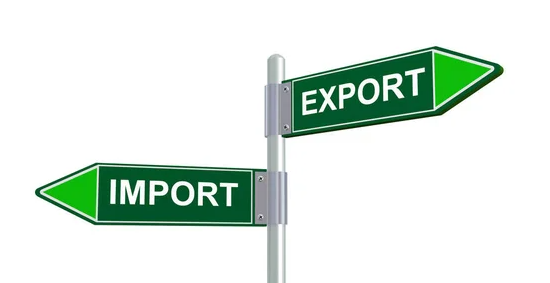Be your Logistics Department in China
Customized logistics solutions, your logistics expert in China
Customized logistics solutions, Shipping from China to the World
Tel:+8613424475220 Email:info@viputrans.com 
Entrepot trade (EU-China-Russia)
Entrepot trade refers to a type of trading arrangement where goods are imported into an intermediary country, stored briefly, and then re-exported to their final destination.
This trade mechanism can potentially be used to address certain challenges in international trade, including restrictions on direct trade between specific countries.
However, its effectiveness in solving the import and export trade between European countries and Russia depends on various factors and specific circumstances.

If European countries are facing restrictions on exporting to Russia or importing from Russia directly, an entrepot trade in China could provide an alternative route for these goods to reach their intended markets.
By utilizing China as an intermediary, European countries can access the Chinese market and facilitate trade with Russia indirectly.
This approach may offer several advantages:
Bypassing trade restrictions: Entrepot trade allows goods to move through a third country, circumventing direct trade barriers imposed on specific regions or countries.
Leveraging China's market: China is a massive market in its own right, and using it as an intermediary allows European countries to tap into its vast consumer base and industrial demand.
Infrastructure and logistics: China has developed robust trade infrastructure and logistics networks, which can help streamline the movement of goods and reduce costs.
Diverse trading opportunities: Entrepot trade can open up opportunities for European countries to trade with other Asian countries as well, not just Russia.
However, there are also challenges and limitations to consider:
Regulatory and legal considerations: Entrepot trade can be subject to various regulations and legal complexities, which may vary depending on the countries involved.
Added costs and time: Adding an extra step in the supply chain through an entrepot can increase costs and lead times, potentially affecting the competitiveness of the goods in the final market.
Political considerations: The success of entrepot trade may be influenced by political relations between the involved countries, which can be subject to change.
Applicability to specific industries: Entrepot trade may be more suitable for certain types of goods and industries, while others may find it less viable or practical.
Re-exporting goods from China to Russia may bring some advantages, but also some risks. Let's take a look:
Advantage:
Bypassing European restrictions: Since many European countries restrict trade with Russia, these restrictions can be circumvented through Chinese entrepot trade, allowing goods to enter the Russian market.
Geographical convenience: China borders Russia, and geographical proximity means shorter transportation distances and lower transportation costs.
Economic cooperation: China and Russia have a close economic cooperation relationship, which also makes entrepot trade possible.
Market potential: Russia is a huge market with rich resources and potential consumers. For Chinese exporters, it is an attractive market.
Risk:
Trade Policy Risks: Potential changes in trade policy between China and Russia may lead to new restrictions or tariff adjustments, affecting the transportation and cost of goods.
Cross-border logistics risks: Cross-border transportation involves transportation and customs procedures in different countries, and there may be risks of delays, loss or damage to goods, especially in the case of complex transportation routes.
Compliance issues: When it comes to cross-border trade, the trade regulations and customs requirements of the two countries must be complied with. Failure to comply may result in fines or other legal consequences.
Geopolitical risks: The geopolitical situation between China and Russia may affect the trading environment, and if tensions or conflicts arise between the two countries, it may have an adverse impact on trade.
Quality control issues: Through entrepot trade, multiple intermediate links may be involved, and the quality and safety of goods need to be more strictly controlled to ensure that the final product meets the standards and requirements of the Russian market.
To sum up, transporting goods from China for entrepot trade to Russia may be a way to circumvent European restrictions, but there are also some risks and challenges.
When conducting such a trade, the potential risks need to be carefully assessed and appropriate steps taken to ensure the trade is compliant and successfully conducted.

We know, how to represent EU country (for example: Czech Republic)and foreign suppliers on the Russian market under our own name. with many years of experience, we know the Russian market. To our partners we are able to setup distribution at Russia on turn-key.
Make the business on the Russian market without worries.
We will mediate the business, including storage, logistics and customs clearance. We can also handle the necessary certifications and approvals for the market.
If you are interested in learning more, please feel free to contact us.
We will provide you with professional advice and services.
Shawn.Liao(Mr.) ,E-MAIL:sales04@viputrans.com ;Phone/Wechat:+8618926970495;Whatsapp/Skype: +8613431563558
WCA Member ID No.129936
Copyright © 2003-2025 VIPU Supply Chain Logistics Co., Ltd. | All Rights Reserved
LOGISTICS | E-COMMERCIAL FULFILLMENT | ABOUT US | CASE | NEWS | VIDEO | CONTACT US
We will find the fastest or the cheapest way for your shipment. Please specify: where from, where to, what to ship.